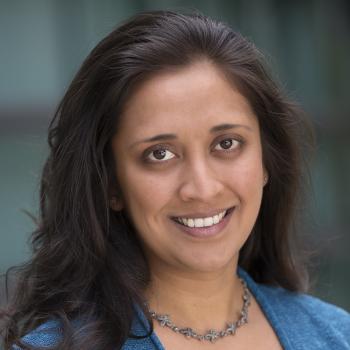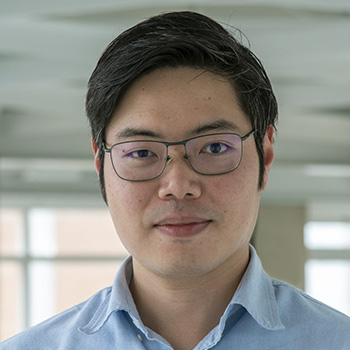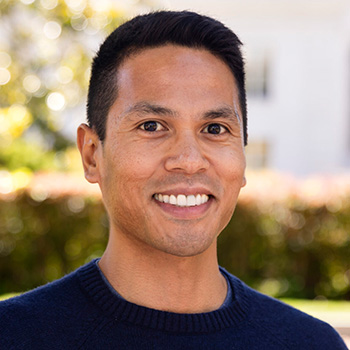Honors for Bhatt, Lim and Nuñez
Bhatt wins ASH award
The American Society of Hematology awarded Ami Bhatt the William Dameshek Prize. Dameshek was a groundbreaking hematologist, past ASH president and founder of the journal Blood. Bhatt is being recognized for pioneering the development and application of genomic approaches to studying the microbiome, which has improved outcomes for many human diseases. Bhatt will receive her award at the ASH annual meeting in December in San Diego.

Bhatt is a professor of medicine and genetics at Stanford University. Her lab characterizes the dynamics of the microbiome in patients with noncommunicable diseases, such as cancer and cardiometabolic disease, and explores how changes in the microbiome are associated with clinical outcomes. She applied microbiomics in the clinical setting to study the impact of gut decontamination on transplant outcomes and is leading large, ongoing studies of the microbiome in the context of graft-versus-host disease.
Bhatt has received many awards including the American Society of Microbiology Microbiome Data Prize, the National Academy of Medicine Emerging Leader in Health and Medicine and the Human Genome Organization Chen Award of Excellence. She is an elected member of the American Society for Clinical Investigation and a Sloan Foundation Fellow.
“ASH is honored to recognize these outstanding hematologists, whose groundbreaking research, mentorship and dedication have profoundly advanced the field,” 2024 ASH President Mohandas Narla, said in a press release. “These visionary leaders have left an indelible mark on hematology and made a lasting impact on the lives of those living with blood disorders.”
Lim & Nuñez named Pew scholars


Ci Ji Lim and James Nuñez have been selected as 2024 Pew biomedical scholars by the Pew Charitable Trusts. They are among 37 scientists joining Pew scholars and fellows programs in the biomedical sciences and cancer research who will each receive a multiyear grant to pursue their interests in cell biology, cancer, neuroscience and other critical research areas.
Lim is an assistant professor of biochemistry at the University of Wisconsin–Madison. His lab investigates the structure of human telomere maintenance machinery and how telomeres confer genome stability. Lim’s research could lead to new diagnostic and therapeutic strategies for telomere-related diseases, such as constitutional marrow failure and pulmonary fibrosis. In 2022, Lim received a High Risk, High Reward New Innovator Award from the National Institutes of Health to study the human telomere chromatin landscape.
Nuñez is an assistant professor of molecular and cell biology at the University of California, Berkeley. His lab probes the mechanisms by which cells prevent transposable genetic elements from jumping around the genome. Nuñez recently discovered new factors that are essential for DNA methylation in human cells and how they play a role in DNA packaging. Nuñez is a Howard Hughes Medical Institute Hanna H. Gray Fellow of HHMI. In 2023, he won a Bakar Fellows Spark Award from the Bakar Fellows Program at UC Berkeley and received funding, resources and mentorship for his project on CRISPR epigenetic editing for cancer immunotherapy.
Enjoy reading ASBMB Today?
Become a member to receive the print edition four times a year and the digital edition monthly.
Learn moreGet the latest from ASBMB Today
Enter your email address, and we’ll send you a weekly email with recent articles, interviews and more.
Latest in People
People highlights or most popular articles

Embrace your neurodivergence and flourish in college
This guide offers practical advice on setting yourself up for success — learn how to leverage campus resources, work with professors and embrace your strengths.

Survival tools for a neurodivergent brain in academia
Working in academia is hard, and being neurodivergent makes it harder. Here are a few tools that may help, from a Ph.D. student with ADHD.

Quieting the static: Building inclusive STEM classrooms
Christin Monroe, an assistant professor of chemistry at Landmark College, offers practical tips to help educators make their classrooms more accessible to neurodivergent scientists.

Hidden strengths of an autistic scientist
Navigating the world of scientific research as an autistic scientist comes with unique challenges —microaggressions, communication hurdles and the constant pressure to conform to social norms, postbaccalaureate student Taylor Stolberg writes.

Richard Silverman to speak at ASBMB 2025
Richard Silverman and Melissa Moore are the featured speakers at the ASBMB annual meeting to be held April 12-15 in Chicago.

Women’s History Month: Educating and inspiring generations
Through early classroom experiences, undergraduate education and advanced research training, women leaders are shaping a more inclusive and supportive scientific community.
